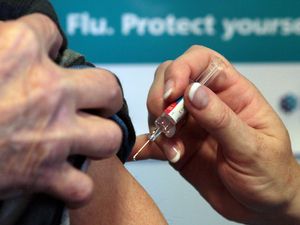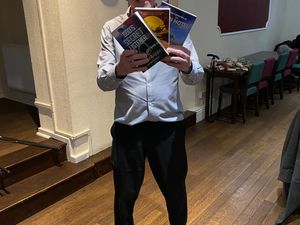Dudley Council says it 'can't win' over scheme to curb pesticides
Dudley council says “it can’t win” as a scheme to curb pesticides that could cause cancer and harm bees goes live. At a scrutiny committee on Wednesday the authority told how it was trialling a scheme to reduce and/or eradicate the use of glyphosate for managing weed control in the borough.
Glyphosate has been identified by the WHO as a “probable human carcinogen”, after research found “strong” evidence for its toxicity. Councils across the country are now trialling chemical-free options or simply choosing to let plants grow.
The chemical has also been linked with damage to bee colonies. It is said that bumblebees struggle to keep their colonies at the right temperature because of the toxic chemical.
However, supporters of pesticides say it is important to control weed growth for a number of safety reasons. They say weed growth can interfere with visibility for road users and obscure traffic signs as well as prevent or slow drainage.
After a petition was submitted to Dudley Council by residents and councillors calling for a ban on pesticides, the council agreed to initiate a trial where natural and chemical-free methods would be used to control weeds. But, now the council has said they can’t win when it comes to weed control as someone will always be unhappy.
Councillor Rob Clinton, cabinet member for waste management and climate change, said: “Controlling weeds is always a very contentious subject. We get people who want us to let weeds and wildflowers grow, while others will call and tell us how much of a mess it looks and ask for them to be cut back.
“So we’re never going to please everyone. But we did say we were going to look at other methods, which we have done through trialling Foamstream, Chikara and Katoun Gold in parts of the borough.”
Herbicide-free Foamstream has been used across the borough. Foamstream works using a combination of hot water and an environmentally friendly foam made from natural plant oils and sugars including wheat, maize, potatoes, rapeseed and coconut oil.
Councillors were told glyphosate-free Katoun Gold and Chikara had also been used, while workers cleared some weeds manually using strimmers and cutters.
Councillor Shaz Saleem, cabinet member for highways and public realm, said: “What we can say at this stage is that we should look at whether a one size fits all approach is still appropriate.
“We have to consider whether our approach for tackling weeds in parks compared to tackling weeds on our roads should be very different. In terms of moving forwards, it’s still very early days and the pilot is just coming to an end. We will have more detailed findings, including costs, when we report back to the committee in January.”




